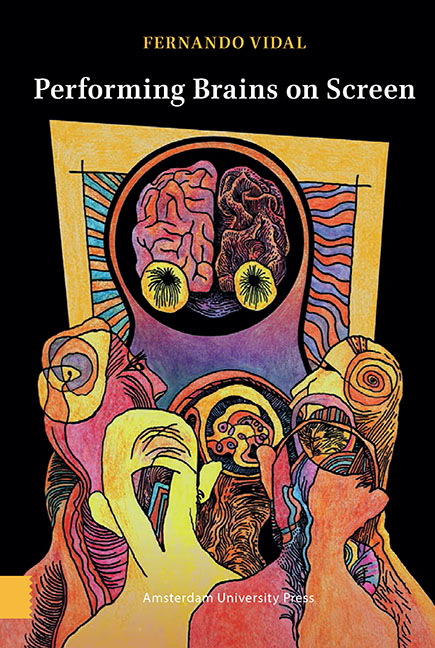Book contents
6 - Memories, Lost and Regained
Published online by Cambridge University Press: 13 May 2022
Summary
Abstract
This chapter examines brain-and-memory movies. While countless films deal in one way or another with memory, only a few perform it explicitly as a process that takes place in the brain. In most pictures, having memories of a “real” past functions as criterion for being one's authentic self; forgetting, memory replacement, manipulation, or erasure therefore pose radical challenges to the self. With regard to memory, the default position of the cinema embodies John Locke's theory of personal identity. This manifests itself in the filmic preference, which this chapter documents, for retrograde amnesia (i.e., the inability to recall events that preceded the onset of the disease). Case studies include Dark City (1998) and Eternal Sunshine of the Spotless Mind (2004).
Keywords: amnesia, authenticity, John Locke, memory, self, memory Erasure
ποƛƛα παθϵιν, nothing matters but the quality of the affection – in the end – that has carved the trace in the mind dove sta memoria Ezra Pound, The Pisan Cantos 76.156–160
Philosophers of cinema, especially those receptive to the “ontological” outlook of André Bazin (1918–1958), pioneer film critic and theorist, and co-founder in 1951 of the Cahiers du cinéma, would argue that film is not a mimetic art, but rather, that it breaks down the opposition between an original and its “copy,” and creates being in the absence of an essence to which it must correspond. As Bazin (2005 [1945], 14) claimed, the photographic image of an object is the object itself; the cinema, which he famously characterized as “objectivity in time,” extends that quality into the realm of duration. The ontological power and prerogative of film is realized through the fact that everything that happens on screen is always present: like a Freudian unconscious, movies know no past tense. It is still the case that motion pictures engage over and over with their characters’ past, usually by embedding it in their subjective memories. As Maike Sarah Reinhert (2009) demonstrates in her study of the means by which film gives plausibility to leaps in time and makes past moments feel like the “past” in spite of happening in the present, to be credible, a character's memories have to be restricted to his or her subjective, mental perspective. That accounts for the value of memory processes and conditions as filmic resources.
- Type
- Chapter
- Information
- Performing Brains on Screen , pp. 179 - 218Publisher: Amsterdam University PressPrint publication year: 2022



